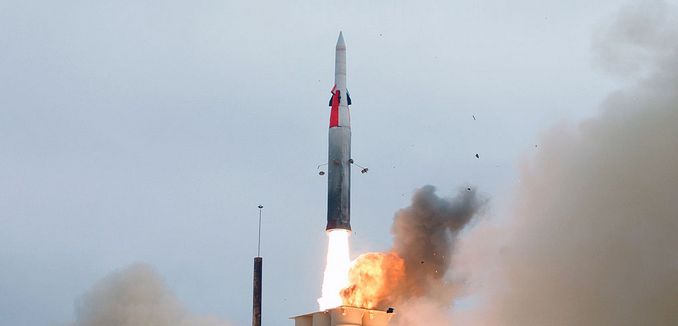The United States is reportedly ready to provide an anti-missile shield to its allies in the Gulf, raising questions about American confidence in its ability to rein in Iran’s expanding conventional and non-conventional capabilities. According to the Global Security Newswire:
The planned antimissile deployments would be an answer to Iran’s growing ballistic missile capacities, Frank Rose, deputy assistant secretary of State for space and defense policy, told journalists in Abu Dhabi on Sunday. The United States and its partners fear that Iran’s ballistic missiles may be able to accommodate nuclear payloads. However, the Middle Eastern nation has refused to discuss the arms in talks in which Western powers are seeking to limit atomic activities that Tehran could tap for bomb development. “As long as Iran continues to develop ballistic missiles that can threaten the United States or deployed forces and our friends and allies in the region, we will work effectively with our partners here in the [United Arab Emirates] as well as the rest of the Gulf to defend against that threat,” Rose said.
Despite the longstanding concerns of the International Atomic Energy Agency (IAEA) and contrary to related UN Security Council resolutions, Iran has insisted that the development of its ballistic missile program is outside the purview of the ongoing P5+1 talks regarding Iran’s nuclear program. Earlier this week Iran announced the development of a new solid fuel ballistic missile with “with high destructive power.” Iran’s continued aggressive military stance is leading to a potentially destabilizing arms race in the Persian Gulf region. Iran’s nuclear weapons development program has prompted an interest in its Sunni neighbors to gain the “nuclear know-how” to counteract the Islamic Republic’s future nuclear threat.
In the January 2014 issue of The Tower Magazine, Emanuele Ottolenghi warned How A Weak Iran Deal Makes Us All Less Safe and War More Likely. In the same issue, Jonathan Spyer wrote of the risks entailed in American outreach to Iran at the expense of America’s Gulf allies.
[Photo: U.S. Navy News Service / WikiCommons ]




